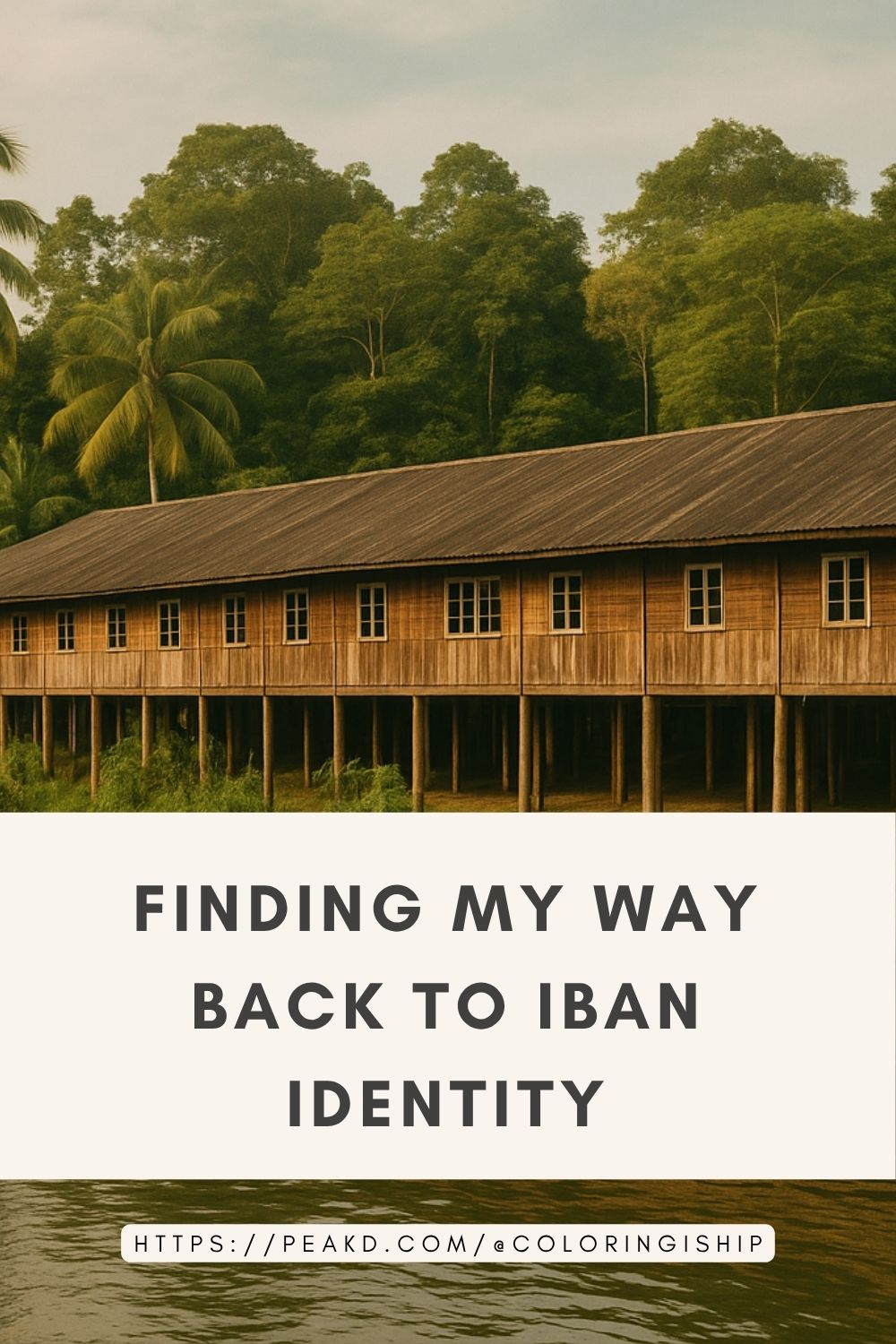
There are moments in life when the ground feels stable, and other times it tilts, making you feel unsure of your footing. For me, those moments have to do with who I am, where I come from, where I live, and strange places in between. Being Iban has always been a big part of who I am, but there have been times when it felt like that part of me was invisible.
I grew up with stories of the longhouse, our folktales, and the old ways of life where dreams and rituals guided decisions. I heard the rhythm of the Iban language before I fully understood it. But outside of that space, I often felt like I was losing my identity. In classrooms filled with English and Malay textbooks, it felt like I had lost touch with my own culture. Teachers spoke of history, but it was always someone else’s story. My people’s stories were at best footnotes. I understood how it felt to be out of place without moving an inch.
When I moved to bigger cities later in life, the feeling got more prevalent. In Kuala Lumpur, I was just another face in the crowd, often mistaken for something other than Iban. It was more distinct in foreign countries. The language barrier was always there. Those around me spoke Mandarin or other languages, while I stayed quiet and tried to figure out what they were saying by watching their body language and tone. I carried silence with me on the train, in bookstores, and even in conversations at work. I had come looking for growth and new opportunities, but I often felt like I was shrinking and struggled to express who I really was. Being out of place became a daily condition.
The church was another complicated place. Faith helped me find my way, but there were times when I felt like I was giving up my roots for an identity that didn’t quite fit. The language, practices, lifestyle, and even the way people spoke about culture and tradition made it seem like there was no room for who I truly am. I sometimes felt the most alone when I was sitting on the pew with people I was supposed to belong with. The dissonance between my beliefs and my identity was truly difficult for me.
Watching younger generations of Ibans, including my children, drift away from the language and customs that shaped us has always been the hardest part. Many of them don’t even know how to speak Iban. They can speak English, Malay, or other languages, but they have trouble speaking or understanding the language of their parents or grandparents. When I see that, I feel the pain of dislocation in a different way. It’s not just that I don’t fit in with the world anymore; it’s that my culture is out of place in its own home. There is a drifting, like waves being pulled farther from shore, and I’m worried about how far it might go before it’s too late to return.
These experiences, though painful, have also taught me something important. Feeling out of place has made me want to reconnect with my roots even more. It has made me more determined to keep stories and traditions alive. It has made me contemplate how language and rituals hold memories and meaning and why remembering is important. What used to feel like absence has turned into a call to action.
This is why I return to writing. Poems, essays, and stories are more than self-expression; they are ways of keeping connection alive. When I write about the land where my ancestors lived or the river that carried their boats, I connect the past with the present. When I share cultural history on my blog, I am planting small reminders for my children and for anyone who might reconnect with their roots.
I have also come to understand that I am not only writing to preserve my culture but also to finally accept my cultural voice in my writing. My culture and identity are not distinct from my craft; they are the foundation from which it develops. The way I see the world and write about it is shaped by the Iban point of view. My unique voice possesses a texture and truth that no one else can match.
If you’ve ever felt like you are out of place, I want to tell you that that feeling doesn’t mean you don’t belong. It means that you are carrying a part of yourself that other people haven’t learned how to see yet. And maybe your role, like mine, is to bring that hidden part back into view. One story and one memory at a time.
Being out of place has become both a wound and a gift for me. It hurts to feel invisible, but it also makes you want to create, remember, and preserve. And maybe that’s the lesson: you don’t always get to belong. Sometimes, we have to keep building it for ourselves with art, words, and memories. When we build it from our core, based on our unique voice, that sense of belonging is unbreakable.
That's it for now. If you read this far, thank you. I appreciate it so much! I'm a non-native English speaker, and English is my third language. Post ideas and content are originally mine. Kindly give me a follow if you like my content. I mostly write about making art, writing, poetry, book/movie review and life reflections.
Note: If you decide to run my content on an AI detector, remember that no detectors are 100% reliable, no matter what their accuracy scores claim. And know that AI detectors are biased against non-native English writers.
Note: All images used belong to me unless stated otherwise.
